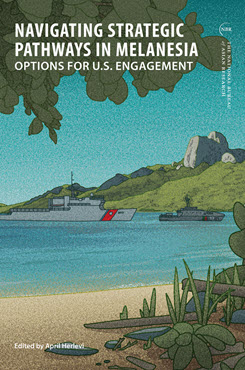Essay in NBR Special Report 110
How Strategic Competition Is Shaping Security Cooperation in Solomon Islands
This essay examines how strategic competition between China and Australia is shaping security cooperation in Solomon Islands.
EXECUTIVE SUMMARY
MAIN ARGUMENT
Strategic competition in the Pacific Islands region, including in Solomon Islands, has manifested in multiple ways as external actors engage in increased diplomatic, development, security, and defense activities with Pacific Island partners. Of these activities, security cooperation has emerged as a central mechanism among external partner countries to build relationships and influence, enable visibility and secure presence, and ultimately serve as a form of deterrence in the Pacific. For Pacific Island partners, specific types of security cooperation can directly assist in meeting their identified security needs, such as countering illegal, unreported, and unregulated fishing. The rise of security cooperation in the Pacific is driven by the strategic interests and actions of external actors and the ways in which Pacific states have leveraged external interest to meet their development and security priorities. However, intensified strategic competition has also resulted in the Pacific Islands Forum identifying security cooperation as an area where competing security partners could overwhelm the efforts of regional states and undermine peace and stability in the region.
POLICY IMPLICATIONS
- Solomon Islands will continue to be seen as a pivotal actor by external partners due to geostrategic drivers. The formation of a new government on May 2, 2024, led by former foreign minister Jeremiah Manele, is an opportunity for partners such as Australia, New Zealand, and the U.S. to strengthen their bilateral relations with Solomon Islands. The U.S., in particular, will need to significantly increase efforts to demonstrate that it is a trustworthy, present, and consistent partner.
- Security cooperation activities in the Pacific Islands surged from 2022 to 2023. This trajectory will likely continue as strategic competition is projected to intensify in the region; however, caution must be heeded. In the case of Solomon Islands, security gaps continue to exist and will require addressing, but not at the expense of human security needs.
- China is seeking to advance its public security credentials across the broader Pacific Islands by drawing on the example of its security partnership with Solomon Islands during the successful conduct of the Pacific Games in 2023 and the national general election in 2024 and by making explicit the link between security and development.
Anna Powles is an Associate Professor with the Centre of Defence and Security Studies at Massey University in New Zealand. She is also a Nonresident Fellow at the National Bureau of Asian Research.


